Top: A poster showing Representative Albert Hills, Jr. (middle) flanked by John Loway and David Kangar in election images of the Quikon Clan in Kokoyah District, Bong County. Images by James Harding Giahyue and Derick Snyder. Graphic by Rebazar Forte
By James Harding Giahyue and Esau J. Farr
- Representative Albert Hills, Jr. of Bong County electoral district number two unlawfully purchased 300 acres of land from an elder in a Kokoyah clan in 2019
- Customary lands are not for sale until 2068, according to the Land Rights Act
- The elder admitted the illegal sale and some of his relatives conceded it undermined the interest of the clan
- Representative Hills insists the purchase was legal, claiming the land did not belong to the community
- The clan is now seeking a customary deed to avoid illegal transactions in the future
ROCK CRUSHER, Bong County – Representative Albert Hills, Jr. purchased 300 acres of customary land in a clan in Kokoyah District, and planted rubber on it, an investigation by The DayLight found.
Hills purchased the land from an elder named John Loway in 2019 for an undisclosed amount. The land lies in Quikon Clan in the Kokoyah Statutory District of Bong County.
The purchase was illegal as the Land Rights Act of 2018 prohibits the sale of customary lands until 2068. Customary land is an area collectively owned by rural communities and its recognition is the main highlight of the law.
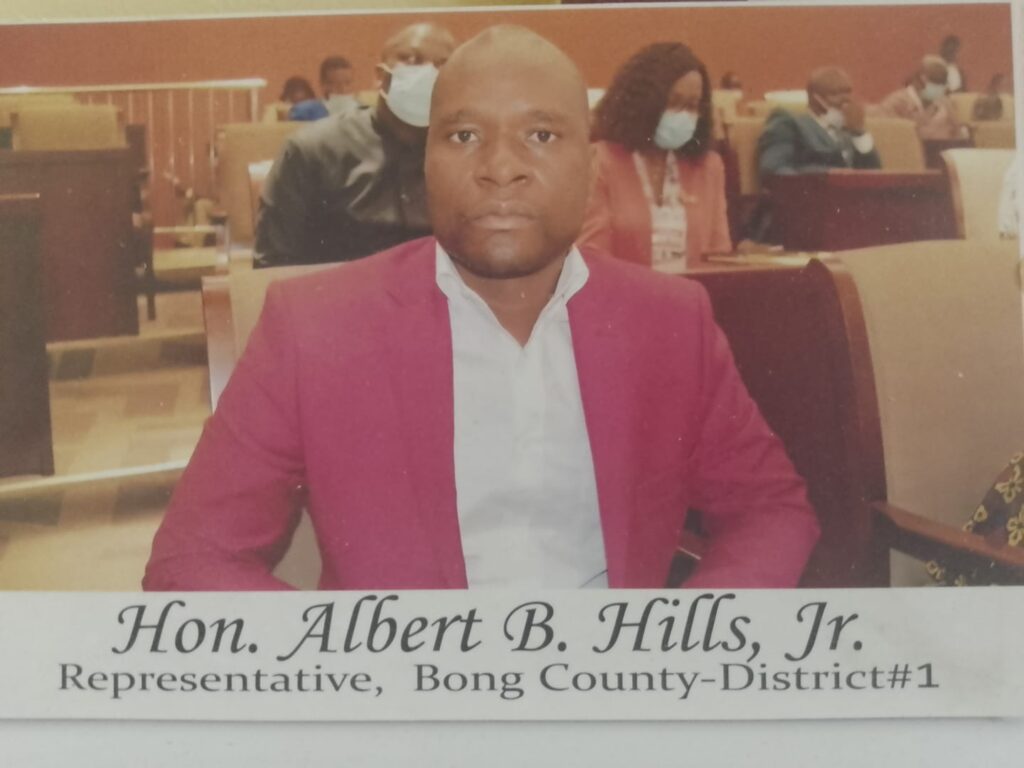
Hills’ purchase and other illegal transactions have motivated residents to seek a deed for the Quikon’s estimated 25,000 hectares of land, residents said.
Loway admitted he sold the clan’s land to Hills, who represents Bong County’s electoral district number one, where Kokoyah falls. Some of Loway’s relatives, who benefited from the illegal transaction, said it undermined the development of their family and clan.
Surveyors
People The DayLight interviewed said they saw staffers from Hill’s Capitol Building office and surveyors in the community.
“I was at my village and saw the people surveying the land. The land is right to my village road there,” said Kerkula Dolokelen, an elder in a place called Kpelle Town.
Eric Kangar, Loway’s son, corroborated Davies’ comments. He told The DayLight he did not know about the transaction until it was over. (Loway uses his grandfather’s first name as a mark of respect).
Former Paramount Chief of Kokoyah District Togar Glaygbo accused Loway of instigating a land conflict. He claimed Loway had sold some of his (Glaygbo) land.
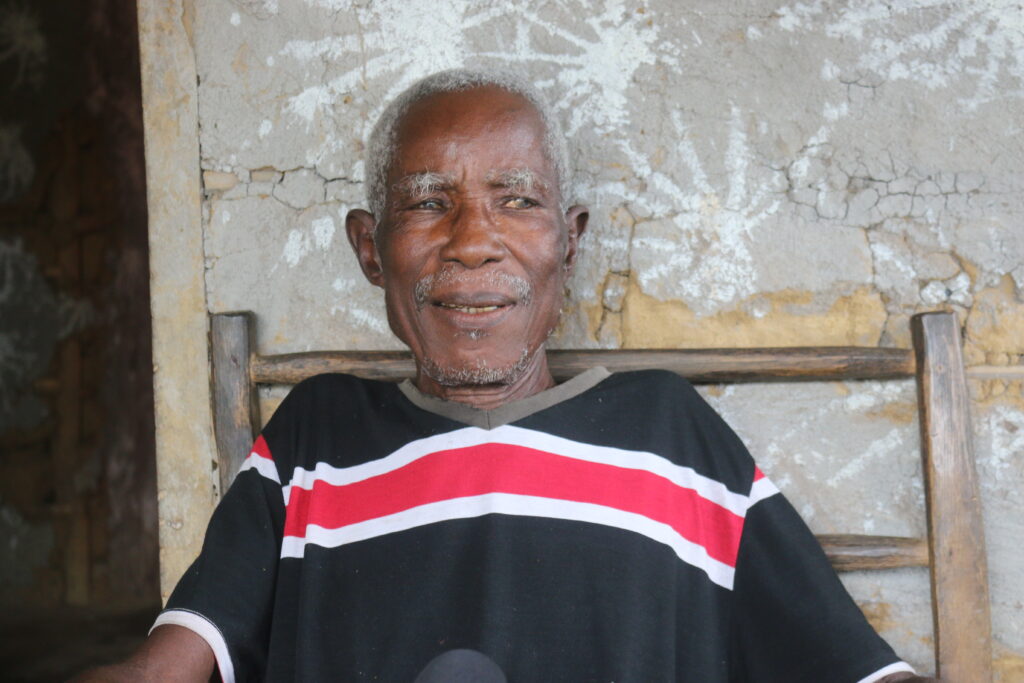
Tension brews throughout the community, based on the people we interviewed. Some residents accused Loway and other elders of not recognizing their families as original residents of the clan. Others spoke of a scarcity of farmland.
“When they continue selling our land, maybe problem will come or we go to the government,” Glaygbo told The DayLight.
Denials, Confessions and Admittances
Loway confirmed he sold the 300 acres to Hills. He told The DayLight at his home in Loway Village, “If you want to do your farm… I will give you [farmland]. “If you want to buy it, then we’ll talk.” He backtracked on that statement later in the interview, saying he was leaving the remaining land for his children.
Loway said he did not inform Glaygbo and other elders about his transaction with Hills for a reason.
“Let me be bold with you,” an ailing Loway said leaning in a chair against the mudbrick wall of his house. “Those men, the last time they sold some of the land over there (Rock Crusher) and did not even give us five dollars.”
Apart from Loway, other townspeople accused Glaygbo of selling the clan’s land, too. A person who does not want to be identified gave The DayLight a list of illegal land sellers, including Loway, Glaygbo and his brother Morris Glaygbo. Efforts to speak with Morris Glaygbo did not materialize.
Togar Glaygbo denied the accusations. “Let them show one person I sold land to,” Glaygbo said, listing people Loway has transacted with, including Hills. He said Loway accused him falsely to discredit his criticism of his deal with Hills.
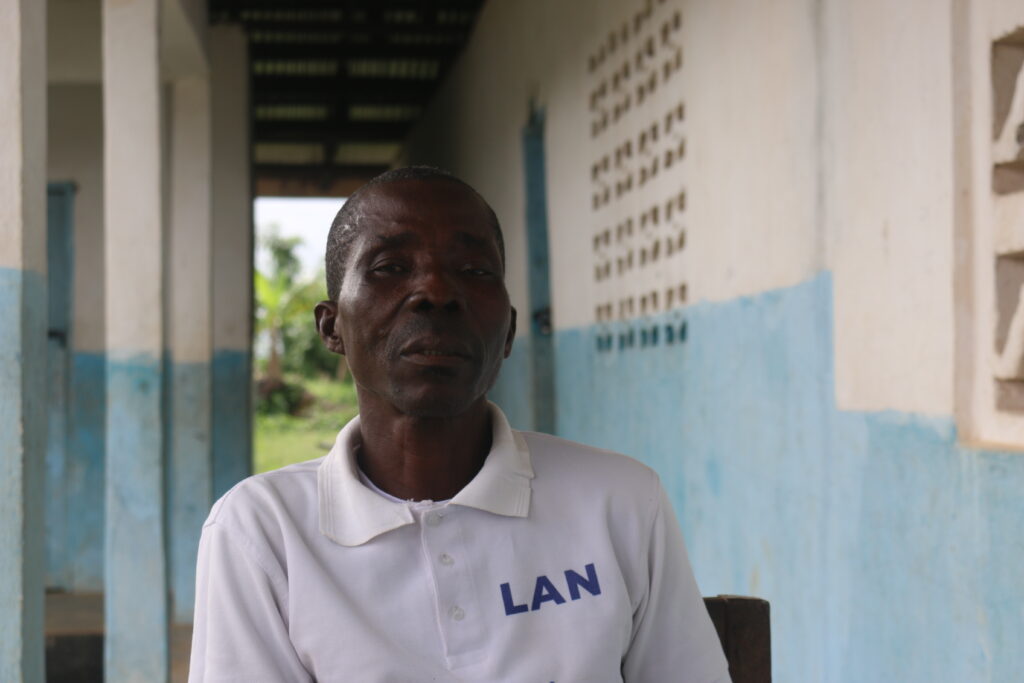
Loway refutes his nephew Kangar’s claim that Kangar did not know of the transaction with Hills. Eric Kangar, Loway’s son, claimed David Kangar even received L$60,000 of the illicit proceeds. (Eric Kangar disclosed that he himself received L$15,000)
Now confronted with Loway’s and Eric Kangar’s claims, David Kangar confessed, saying he only received L$5,000 from the deal. He regretted his involvement, which he said undermined his children’s future and the clan’s. “It (sale of the land) is affecting us. The reason is that we are [bearing] our children,” David Kangar lamented.
David Kangar had not mentioned anything about money when we interviewed him earlier. He had said Hills’ survey of the 300 acres was to his “outmost surprise.”
Hills is adamant that he illegally purchased the land from Loway in two interviews.
In the physical interview, the lawmaker confirmed that he had bought the land in 2019 but argued it did not belong to the community. He claimed to have both a tribal certificate and title deed for the land, declining to show the documents.
“I passed through all the channels,” Hills said, lecturing our reporter on land acquisition. “Even today if I want to get land, I can get it. Any person I want to get land from, once I reach to the community people and say that’s the owner of the land, I can buy it.”
Hills refused to say how much he paid Loway for the land. None of David Kangar, Eric Kangar and Loway provided that information.
Hills’ comments are not factual.
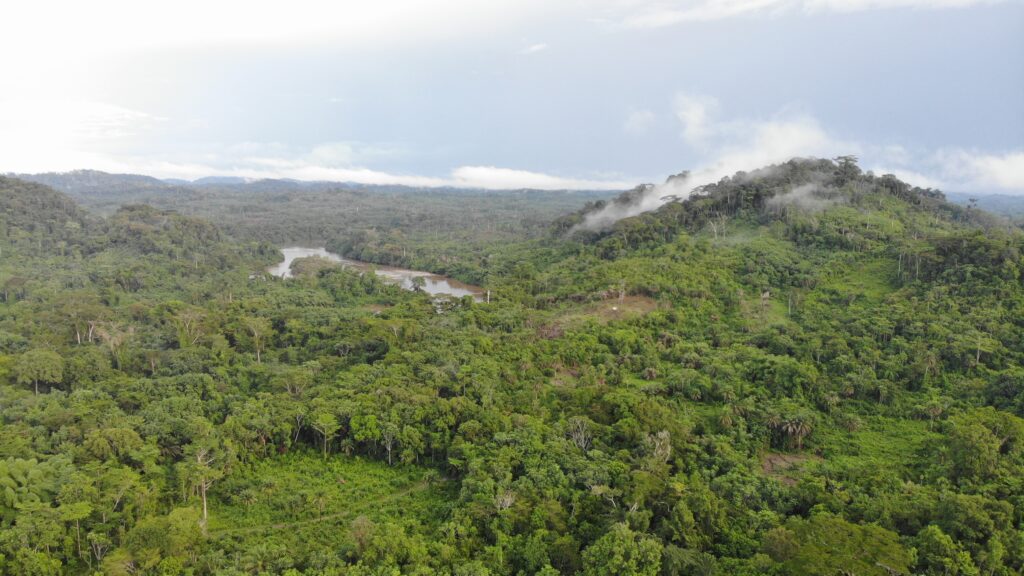
First, Hills’ tribal certificate and deed story contradicts Loway’s account. Loway said that their transaction was not officially documented, as he did not have a deed for the land in question.
Second, one cannot have a deed and a tribal certificate for the same plot of land at the same time, per the land law. Tribal certificates, and land documents issued by chiefs and elders, must be vetted and then transformed into official deeds.
And the land law prohibits tribal certificates as of September 2018, about a year before Hills’ deal with Loway. Under the law, customary land can only be leased based on certain requirements, including residents’ establishment of a community land development and management committee or CLDMC. That is the process Quikon began by consenting to work with the Gbarnga-based NGO Parley Liberia.
To achieve that goal, Quikon must first self-identify as a landowning community. Thereafter, it will map its estimated 25,000-hectare land area, create bylaws, establish a governance team and cut boundaries with neighboring clans. Then the Liberia Land Authority will confirm their land area and give them a customary deed, according to the law.
Isaac Davies, one of Loway’s nephews, who said he moved back to Quikon from Monrovia to protect the clan’s land, said elders were selling the clan’s land for chainsaws, clothes, and roofing sheets. He said he now had to walk an hour and 45 minutes to his farm because Hills’ rubber farm barricades it.
Davies wants residents to strive to get back the land Hills purchased. “To us, the survey is not genuine, even if the President signed it,” Davies said.

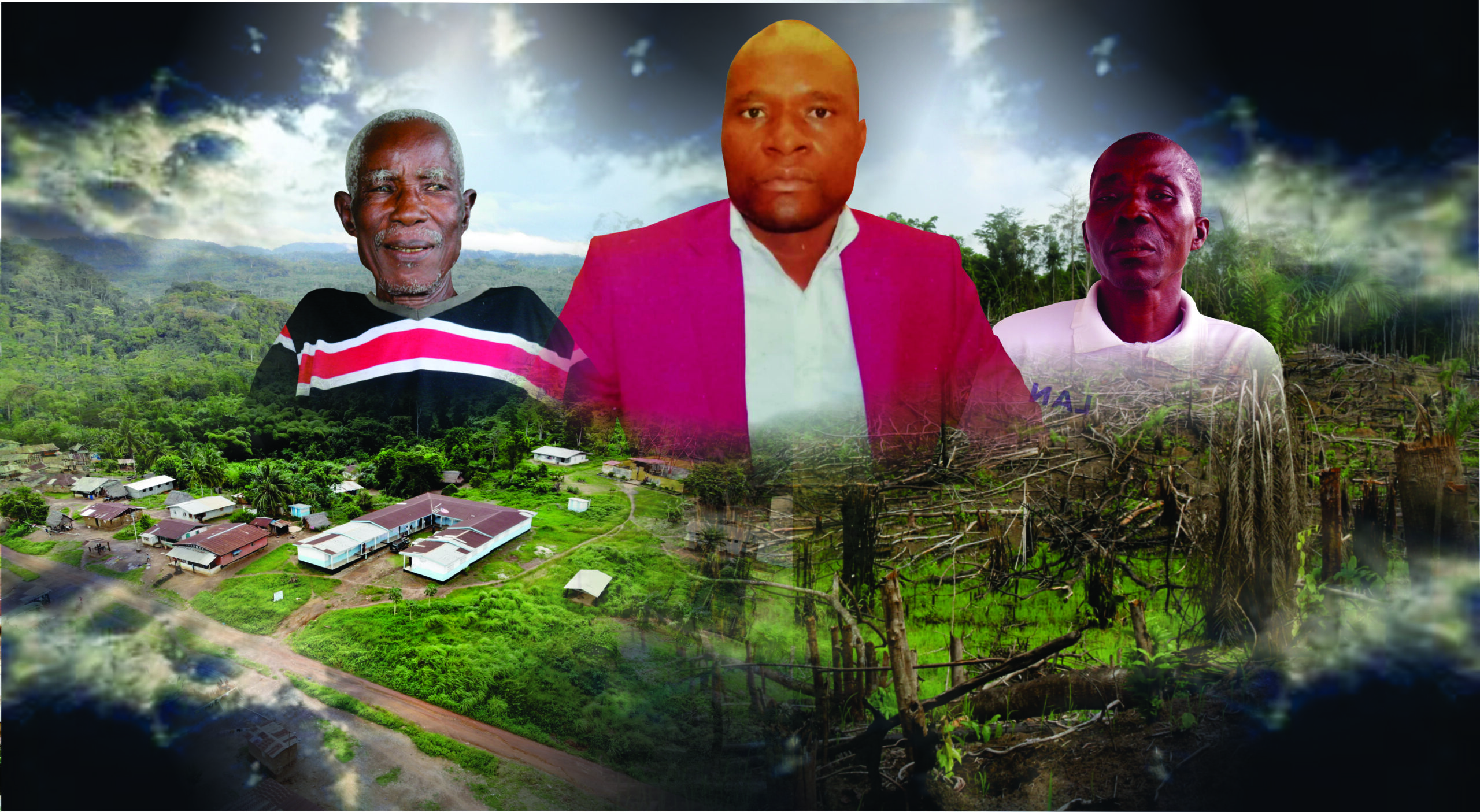
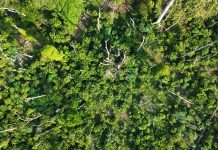

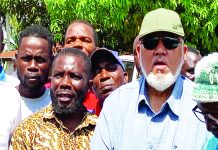
Facebook Comments